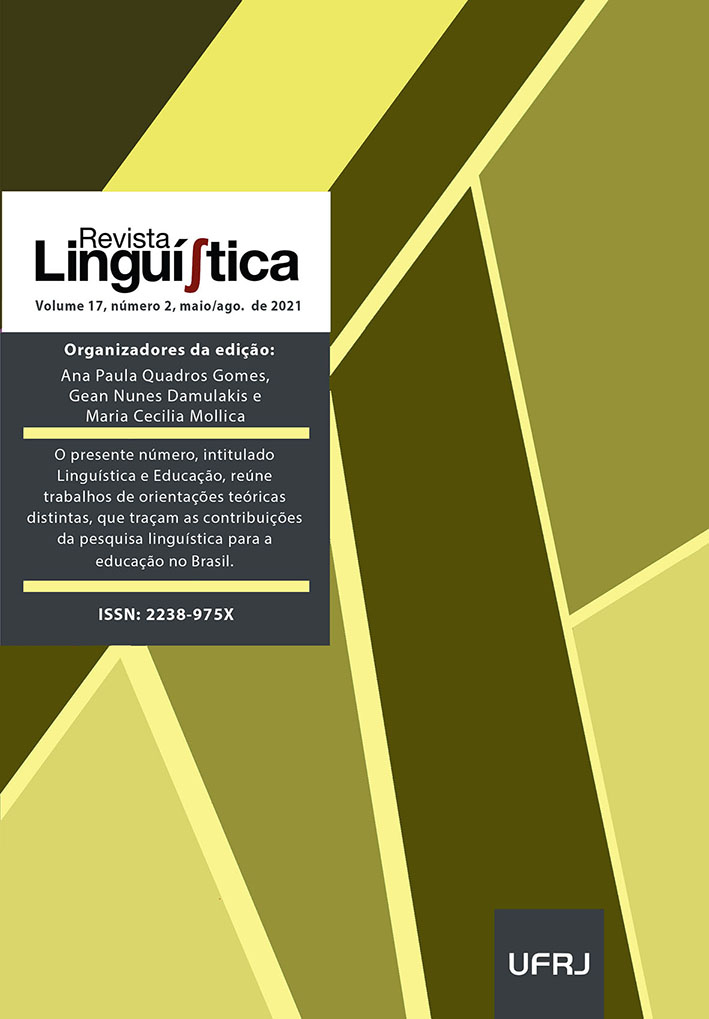Autonomy, consciousness and complexity in the language in use: a cognitive approach
DOI:
https://doi.org/10.31513/linguistica.2021.v17n2a42511Keywords:
Iconicity, autonomy, Complexity, non-finitive constructions.Abstract
Here, we will approach the transition between body-language (embodied language) through the analysis of grammatical constructions of the language as a process constituted of a gradient complexity. To do this, we will focus the iconicity principle, manifested in processes of progressive complexity. We will explain the importance of cognitive niches created from sociocultural experiences (in different degrees of awareness of use) from which degrees of complexity emerge, so that we can focus on the context of acquiring Brazilian Portuguese (PB) as an Additional Language (LA) and its implications for linguistic fluency. We will consider, in this stage of study, two Chinese (a man and a woman), inhabitants of the city of São Paulo, who were interviewed by Bi (2013) for their Master’s dissertation. These two samples are similar in terms of the period of migration to São Paulo and the first language (LM), which is Chinese. In order to contribute to linguistic studies, this article aims to analyze the uses of the infinitive constructions collected in these interviews and, afterwards, and to compare the result with the gradient complexity observed in the samples of two eldery speakers (a man and a woman) who have the BP as LM. The functional patterns verified allowed us to validate the initial hypothesis that restricting access to interactive contexts would reduce grammatical fluency in LAs, thus configuring a relevant iconic parallel. Additionally, we show that this gradient complexity in the use of infinitive constructions can be a good criterion for assessing fluency in PB as LA.Downloads
Published
Issue
Section
License
Authors who publish in the Revista Linguí∫tica agree with the following terms:
The authors maintain their rights, ceding to the journal the right to first publication of the article, simultaneously submitted to a Creative Commons license permitting the sharing with third-parties of published content as long as it mentions the author and its first publication in the Revista Linguí∫tica.
Authors may enter into additional agreements for the non-exclusive distribution of their published work (for example, posting in online institutional or non-profit repositories, or book chapters) so long as they acknowledge its initial publication in the Revista Linguí∫tica.

The journal Revista Linguí∫tica is published by the Post-Graduate program in Linguistics of UFRJ and employs a Creative Commons - Attribution-NonCommercial 4.0 International (CC-BY-NC).









